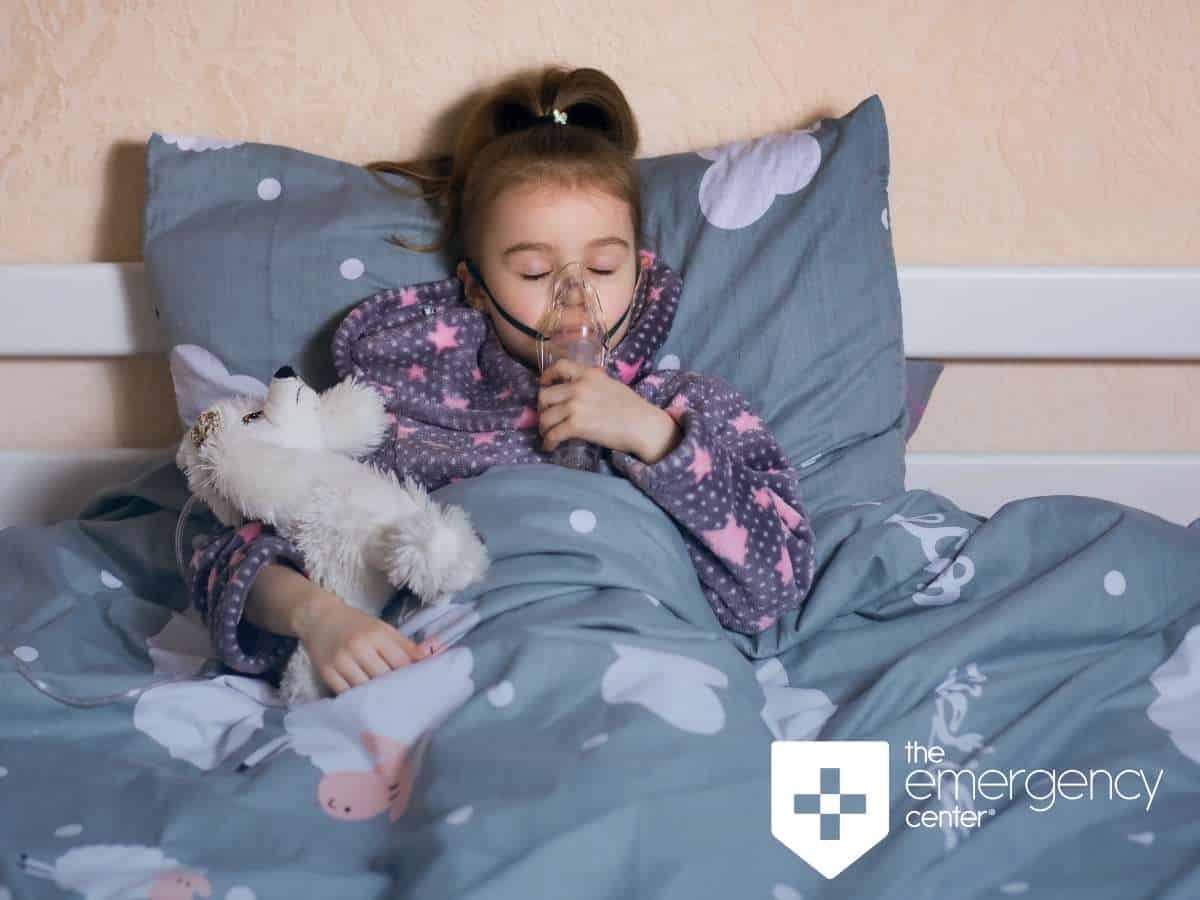Respiratory Syncytial Virus (RSV) is an upper respiratory infection most commonly found in children and infants. Within the first two years of age, studies suggest that almost every child in the country becomes infected with RSV every year. While most cases of RSV show minor symptoms, the virus causes up to 125,000 hospitalizations in children annually. It is a widespread condition that becomes an epidemic every year, mostly during the fall and winter seasons.

There are currently two strains of Respiratory Syncytial Virus (A and B), and each strain varies regarding the severity of the symptoms. It is a contagious virus that can only transmit from human to human, and it can infect a person repeatedly throughout their lifetime. Contaminated surfaces, saliva, mucus, and skin surfaces can harbor the virus and infect others. The virus can remain on surfaces for hours, and on the skin for 30 minutes or so.
Symptoms of RSV develop about five or six days after contracting the virus. RSV causes intense inflammation within the respiratory system, contributing to various respiratory problems, including infections deep in the lungs. The severity of the disease varies depending on the location. The virus is at its most severe when it attacks the smaller bronchial tubes, which results in bronchiolitis. If the disease makes its way to the rest of the lungs, it can trigger pneumonia, which can be fatal.
The most recognizable signs of Respiratory Syncytial virus are similar to those of a common cold. They include a congested or runny nose, small fever, coughing, and headache. If the condition does infect the rest of the lungs, symptoms intensify. They include wheezing, heavy cough, increased fever, breathing difficulty, rapid breathing, and bluish tinting of the skin due to oxygen depletion.
RSV is most severe when it infects infants, as they do not have immune systems strong enough to combat the virus. When infected, the child will notably experience shortness of breath, which may require immediate attention at a children’s emergency room. Shortness of breath causes the chest muscles of the infant to pull inward much more than usual. Other notable symptoms in infants include lethargy, poor feeding, short and rapid breathing, and a heavy cough. The child will also become irritable.
Currently, there is no cure or vaccination for Respiratory Syncytial Virus. However, prevention from the virus may come from a medication known as palivizumab. Although not a vaccine, it is an antibody that is injected into babies to help prevent an RSV infection. Doctors may recommend five monthly shots of the medicine during RSV season, especially for high-risk infants.
While the injection works to prevent infection, the treatment is ineffective in treating the symptoms of RSV once the child becomes infected. Humidifiers and saline nasal drops help minimize some of the symptoms of RSV. The most important things to do to treat RSV are to drink plenty of fluids and stay hydrated. Hypoxemia, a condition in which oxygen levels decrease to a dangerous level, can be severe. The infected individual must use a breathing apparatus to help breathe in the oxygen needed during infection.
Sanitation is vital when it comes to RSV prevention. The virus thrives in unclean conditions.
Wash hands thoroughly and frequently, especially after coming into contact with an infected individual. Children should also know how to wash their hands as well properly. A general rule of thumb is to wash hands for about as long as it takes to sing the Happy Birthday Song twice (about 20 seconds).
Because the Respiratory Syncytial Virus is contagious, even when airborne, it is essential that people avoid all possible exposure with the RSV. Closed-in spaces, such as schools and daycare facilities, allow the virus to affect multiple at once.
Maintaining a clean environment is also a great way to prevent others from catching RSV. Always keep kitchens, bathrooms, and all other countertops sanitized. Mucus in the nasal passages can transmit RSV. Always throw away any used tissues, especially in used by an infected person. Also, sanitize all toys regularly.
The Respiratory Syncytial Virus contaminates saliva, among other things. Therefore, please do not allow children to share drinking cups, utensils, or anything else that they may put their mouths on.
One of the many fears of a new parent is when their child becomes ill. Respiratory Syncytial Virus can turn very serious when a child becomes infected. Always treat respiratory infections in young children as a potential medical emergency, and schedule a doctor appointment at the first sign of symptoms. Should breathing problems or symptoms of Hypoxemia arise, or if there is a high, spiking fever, bring your child to The Emergency Center immediately for treatment.
If your child is severely ill with RSV – Respiratory Syncytial Virus, come to The Emergency Center immediately. We are here 24/7/365 if you or your family needs emergency care. Never second guess whether or not an illness is severe enough to require emergency attention. The Emergency Center provides up to 23 hours of Observation and offers 24/7 care with NO WAITING. Visit The Emergency Center’s convenient 24-hour location.
The Emergency Center
San Antonio
11320 Alamo Ranch Pkwy
San Antonio, TX 78253
Phone: 210-485-3644
Conroe
4019 I-45 N,
Conroe, Texas 77304
Phone: 936-247-9457
Is your nausea more than just an upset stomach? Learn about the causes of nausea…
Experiencing numbness or tingling? Discover the causes and know when to seek emergency care for…
Experiencing abdominal pain? Learn what it could mean by location and when to visit the…
Is your skin redness a sign of something serious? Learn about different types of skin…
Why are ER wait times so long? An emergency room physician explains key delays and…
Are you aware of the dangers of carbon monoxide? Learn prevention tips, symptoms, and how…